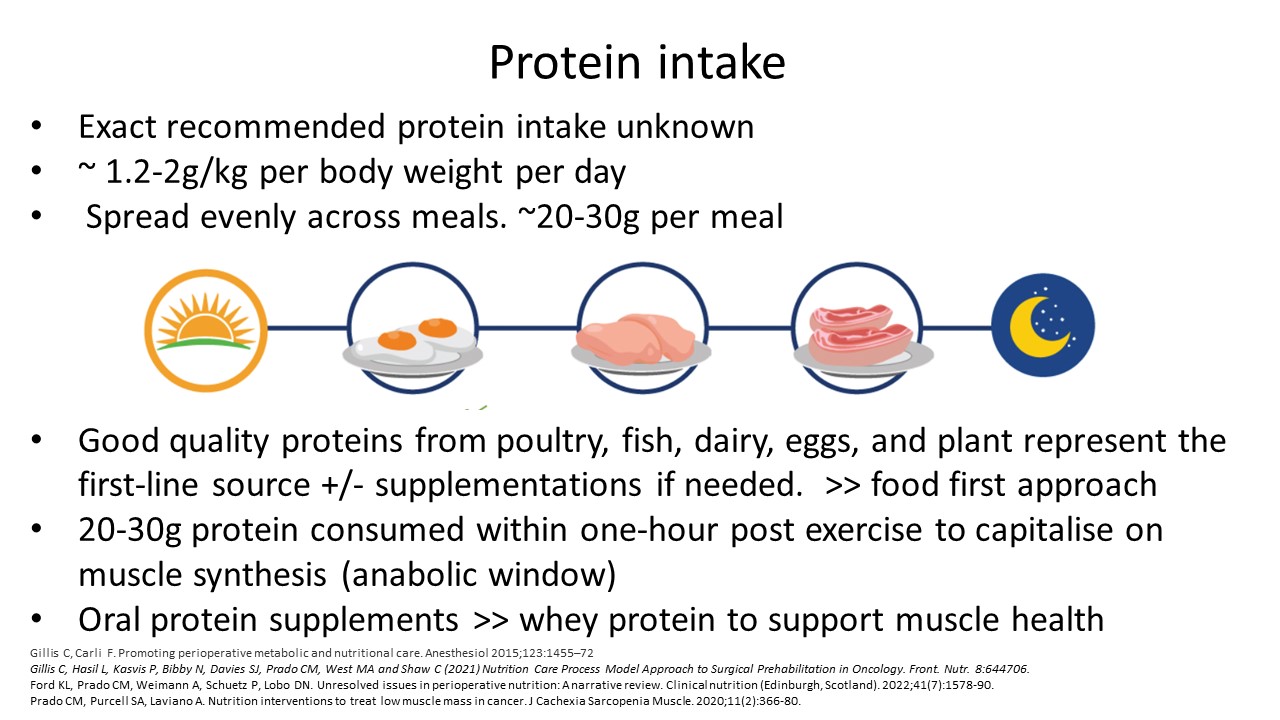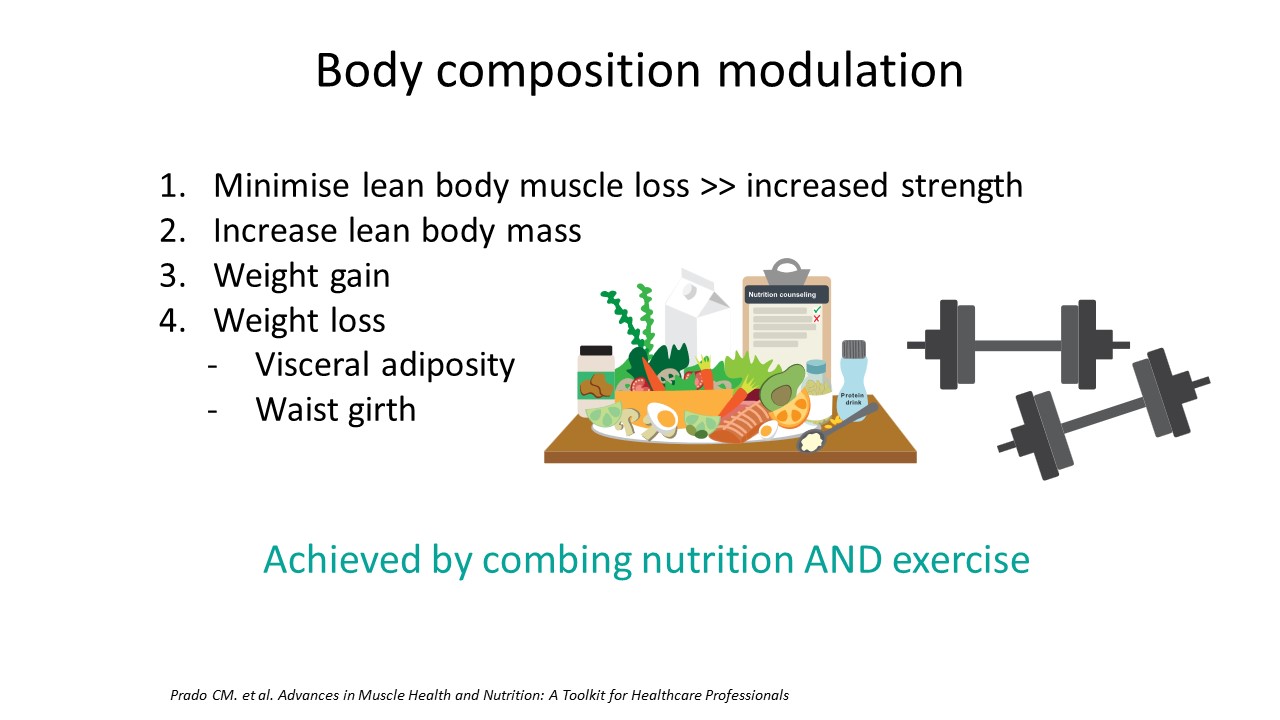Prehab nutrition by Kristy-Lee Raso, APD, PhD candidate
 Anthea Talliopoulos, APD
Anthea Talliopoulos, APD
The health of our ageing population is becoming increasingly complex with multiple comorbidities as well as the requirement for surgeries. Alongside the increased incidence of surgeries, 30-50% of patients will develop post-operative complications, and some will not return to their baseline function, may nutritionally decline and have a reduced quality of life.
Given these risks, over recent years, there has been increased advocacy for nutritional prehabilitation. Prehabilitation aims to increase the functional, nutritional and psychological reserve to enhance a patient to withstand the stress of surgery, leading to better post-operative outcomes and functional recovery. While there has been increased awareness and interventions around recovery after surgery, such as through the ERAS pathway, many interventions are currently focused on the post-operative period, rather than the pre-operative period as well. Accredited Practising Dietitian Kristy-Lee Raso speaks about the nutritional importance of prehabilitation, as well as the importance of having a targeted and multidisciplinary approach in addressing exercise, body composition modulation and providing psychological support to allow patients to return to baseline after surgery. She also provides a step-by-step approach on establishing a prehabilitation program, ensuring that the process is set-up with minimal hassle for clinicians to refer patients onto.
From a nutritional point of view, and to limit the complications of the catabolic stress response after surgery, Kristy explains that anabolism must be supported, including adequate protein intake of 1.2-2.0 grams per kilogram to prevent muscle breakdown, support wound healing and for optimal immune status. It is recommended that nutritional screening and intervention begin 2-4 days before surgery, a check-in at 7-10 days after starting the prehabilitation intervention, as well as 4-8 weeks after surgery to best prevent complications and optimise recovery.
Overall, nutritional prehabilitation is a critical aspect in optimising patient care, and we as clinicians should seek to continue to advocate for this given the profound impact that it has in preventing post-surgical complications and enhancing quality of life.
Summary:
- A significant proportion (30-50%) of patients undergoing surgery will develop post-operative complications, and some will not return to their baseline function, may nutritionally decline and have a reduced quality of life. Prehabilitation aims to increase the functional, nutritional and psychological reserve to enhance a patient to withstand the stress of surgery, leading to better post-operative outcomes and functional recovery.
- From a nutritional perspective, protein catabolism occurs after surgery and the surgical stress response increases energy and protein requirements. To limit muscle wastage, nutritional screening should occur 2-4 days before surgery and up to 4-8 weeks after surgery to optimise recovery.
- Supporting anabolism, ensuring protein intake is adequate at 1.2-2.0g/kg per day, and ensuring adequate energy intake are key.
- Advocating for prehabilitation nutrition and establishing referral pathways and programs for this is key to optimise patient outcomes.
Kristy-Lee Raso is the Colorectal Surgery and Gastrointestinal Prehabilitation Dietitian at Concord Repatriation General Hospital in Sydney, Australia. Kristy has a particular interest in preoperative nutrition and is currently completing her PhD on Prehabilitation in gastrointestinal cancer surgery investigating the effects of nutritional prehabilitation, implementation and compliance with prehabilitation interventions and its impact on surgical outcomes. She is currently involved with a number of committees including the NSW Agency for Clinical Innovation Surgical Taskforce Prehabilitation working party.
To register for the presentation and associated documents including the assessment quiz click here

